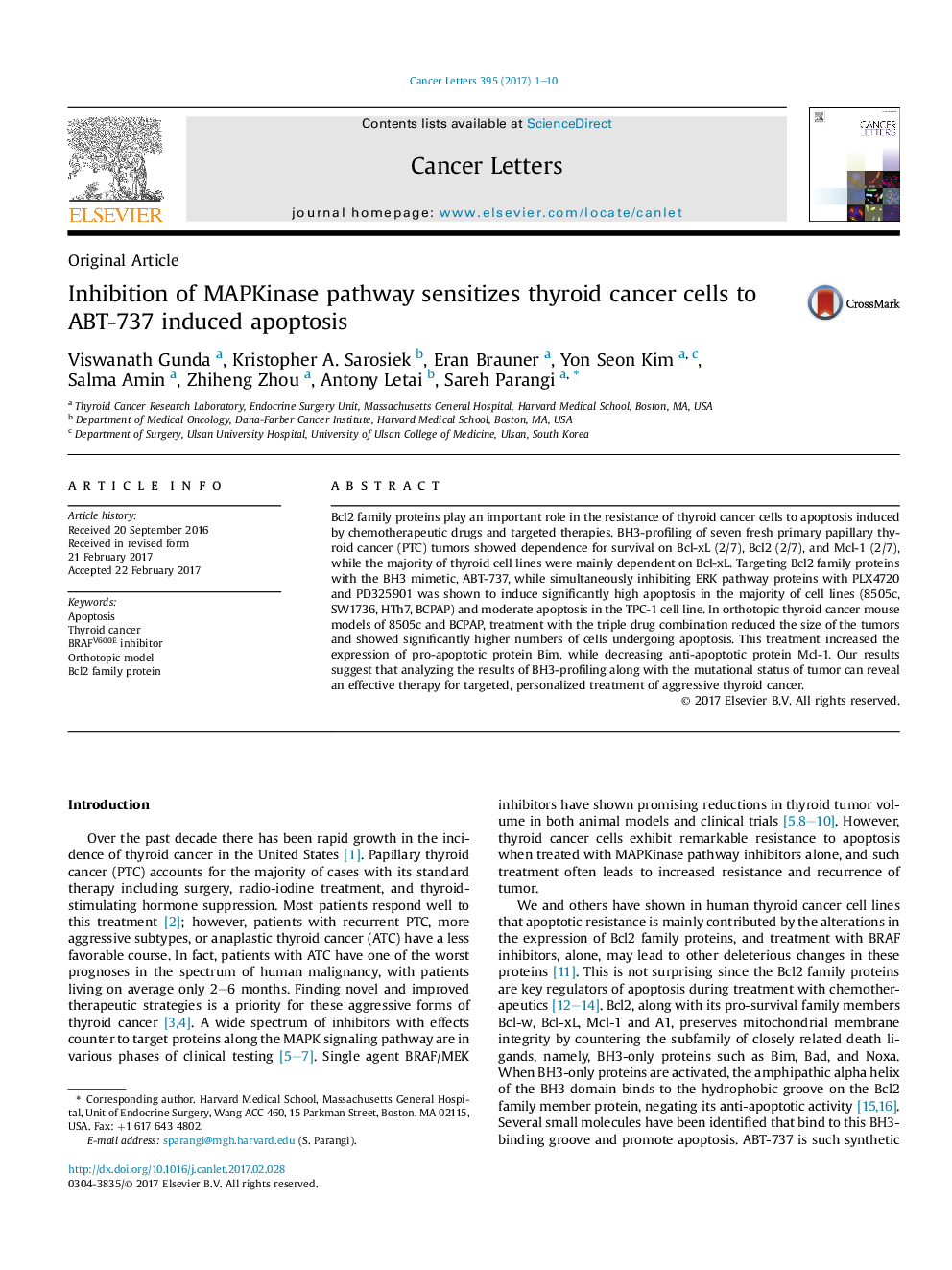| Article ID | Journal | Published Year | Pages | File Type |
|---|---|---|---|---|
| 5525623 | Cancer Letters | 2017 | 10 Pages |
â¢Bcl2, Bcl-xL and Mcl-1 proteins contribute to strong apoptotic resistance in thyroid cancer cells.â¢Combinatorial treatment with Bcl2 and MAPKinase inhibitors was tested in thyroid cancer.â¢Mutational analysis and “BH3 profiling” of primary thyroid tumors help determine therapeutic strategy in patient care.
Bcl2 family proteins play an important role in the resistance of thyroid cancer cells to apoptosis induced by chemotherapeutic drugs and targeted therapies. BH3-profiling of seven fresh primary papillary thyroid cancer (PTC) tumors showed dependence for survival on Bcl-xL (2/7), Bcl2 (2/7), and Mcl-1 (2/7), while the majority of thyroid cell lines were mainly dependent on Bcl-xL. Targeting Bcl2 family proteins with the BH3 mimetic, ABT-737, while simultaneously inhibiting ERK pathway proteins with PLX4720 and PD325901 was shown to induce significantly high apoptosis in the majority of cell lines (8505c, SW1736, HTh7, BCPAP) and moderate apoptosis in the TPC-1 cell line. In orthotopic thyroid cancer mouse models of 8505c and BCPAP, treatment with the triple drug combination reduced the size of the tumors and showed significantly higher numbers of cells undergoing apoptosis. This treatment increased the expression of pro-apoptotic protein Bim, while decreasing anti-apoptotic protein Mcl-1. Our results suggest that analyzing the results of BH3-profiling along with the mutational status of tumor can reveal an effective therapy for targeted, personalized treatment of aggressive thyroid cancer.
